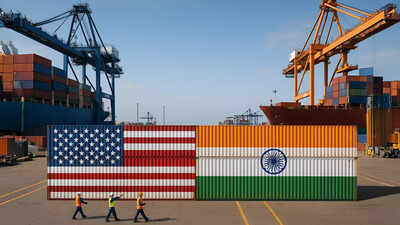BIT network expansion in fast lane: India in talks with 12+ nations; Saudi Arabia, Russia among priority partners

India is actively negotiating bilateral investment treaties (BITs) with more than a dozen countries, including Saudi Arabia, Qatar, Israel, Oman, the European Union, Switzerland, Russia, and Australia, a senior government official said.Talks are also underway with Tajikistan, Cambodia, Uruguay, Maldives, Switzerland, and Kuwait, with some treaties likely to be finalised and announced in the next 3–6 months, PTI reported.These agreements are aimed at protecting and promoting investments in each other’s countries. As India moves toward becoming the world’s third-largest economy and a global manufacturing hub, the government is working to strengthen its investment regime and attract more foreign investors.In line with this, the government announced in the last Budget that it would revamp its current model BIT to make it more investor-friendly. India signed BITs with two countries in 2024 and implemented BITs with the UAE and Uzbekistan in 2023.Unlike investment facilitation chapters in free trade agreements, BITs offer broader investor protections, including a wide range of obligations enforceable by international arbitration. Notably, India has a provision requiring foreign investors to exhaust local legal remedies before seeking international arbitration — a clause designed to protect public funds and reduce legal costs.Under the India-UAE BIT signed this year, the mandatory waiting period for local remedies was shortened from five years to three, indicating a flexible yet cautious approach.“India remains committed to negotiating agreements that safeguard its economic interests while balancing investor confidence and domestic policy space,” another government official said, quoted PTI.The broader goal is to rebuild India’s BIT ecosystem to pre-2015 levels but on modernised terms. India is seeking a balance of interests between investors and host state obligations while aligning with global protection standards to offer a stable framework for foreign capital.Deloitte India economist Rumki Majumdar said BITs give India the opportunity to pursue tailored partnerships based on complementary strengths, without the compromise typically required in multilateral deals.“Bilateral treaties will allow India for case-by-case negotiation, ensuring that the terms reflect the specific economic complementarities between itself and its partner countries,” she said.Majumdar also emphasised that BITs should not be treated as mere legal tools but as “strategic economic enablers” to unlock greater value from India’s competitive and comparative advantages.According to the Economic Survey 2024–25, India must “pull out all the stops” to improve tax certainty and regulatory stability if it is to boost FDI inflows.Foreign direct investment into India crossed the $1 trillion mark in the April 2000–March 2025 period, reinforcing its image as a safe and attractive global investment destination. In FY25 alone, FDI stood at $81 billion.Mauritius accounted for 25% of the inflows, followed by Singapore (24%), the US (10%), the Netherlands (7%), Japan (6%), the UK (5%), and the UAE (3%). Germany, Cyprus, and the Cayman Islands accounted for 2% each.The sectors drawing the most FDI included services, computer software and hardware, telecom, trading, construction development, automobiles, chemicals, and pharmaceuticals.





